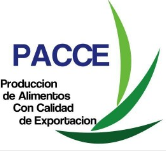The recently signed Withdrawal Agreement Farming has sparked both excitement and concern among farmers in the region. This agreement aims to regulate and streamline the farming industry, ensuring fair trade practices and promoting sustainability.
Meanwhile, a Delhi Agreement 1952 Kashmir has resurfaced in discussions, bringing renewed attention to the historical and political context of the region. This agreement, signed between India and Pakistan, aimed to establish a framework for resolving the Kashmir conflict.
As the farming community awaits the implementation of the withdrawal agreement, it is crucial to understand its implications and how it will impact their livelihoods. The agreement introduces new regulations pertaining to land use, import/export practices, and subsidies. Farmers will need to familiarize themselves with these changes to ensure compliance and optimize their farming practices.
In a similar vein, the Delhi Agreement 1952 Kashmir has been a topic of debate for decades. The agreement recognized the unique status of the region and proposed a plebiscite to determine its future. However, the plebiscite has never been held, leading to ongoing tensions between India and Pakistan.
Aside from farming and political agreements, legal matters also play a significant role in various industries. For example, businesses in Nigeria often rely on hire purchase agreement templates to facilitate the acquisition of assets. These templates provide a structured framework for parties involved in hire purchase transactions, ensuring legal compliance and protecting the rights of both buyers and sellers.
In real estate, a well-drafted listing agreement arrangement is crucial for sellers and agents to establish their roles and responsibilities. This agreement outlines the terms and conditions of the listing, including pricing, marketing strategies, and property disclosures. It serves as a legally binding document that protects the interests of all parties involved in the transaction.
When it comes to investments, it is important to understand the legal implications. Investors often wonder whether an investment contract qualifies as a security. This distinction is essential for compliance with securities regulations and determining the rights and protections afforded to investors.
In the realm of real estate transactions, contracts are subject to revisions and amendments. The TREC amendment to sales contract is one such example. This amendment allows parties to modify certain terms and conditions of the original contract, ensuring clarity and alignment of interests.
Switching gears to the education sector, teachers in the UK have contracted hours that define their working arrangements. These teacher contracted hours outline the number of teaching hours, preparation time, and additional responsibilities. They serve as a foundation for fair employment practices and work-life balance.
Legal contracts can sometimes be subject to challenges or disputes. In such cases, understanding the concept of a voidable contract is essential. A voidable contract is one that is valid and enforceable, but due to certain circumstances or legal deficiencies, one party has the option to void or cancel the contract.
Lastly, the termination of agreements requires careful consideration of legal obligations and consequences. The termination of delegation agreement is a complex process that involves the cessation of a delegated task or responsibility. Parties involved must ensure compliance with the termination provisions outlined in the agreement to avoid any potential legal repercussions.
In conclusion, the withdrawal agreement farming and Delhi agreement 1952 Kashmir illustrate the diverse range of agreements and contracts that shape various sectors and regions. Understanding the implications and legal frameworks surrounding these agreements is crucial for individuals and businesses alike.
 orcid.org/0000-0001-6003-7487
orcid.org/0000-0001-6003-7487







 - ULA
- ULA Guia de Alta Montaña
Guia de Alta Montaña Industrial Chemistry – Texas A&M
Industrial Chemistry – Texas A&M Laboratorio FIRP
Laboratorio FIRP Materials Learning – Cambridge Univ.
Materials Learning – Cambridge Univ. Petroleum Refining – Colorado Univ.
Petroleum Refining – Colorado Univ. COLMEQUIM
COLMEQUIM BIOVEN
BIOVEN CARPA
CARPA GUMMYN
GUMMYN PACCE
PACCE PharmaQuim
PharmaQuim PRODELIM
PRODELIM WATERFRESH
WATERFRESH ALITOS
ALITOS Biocosmetiq's
Biocosmetiq's E.B.T. Bebidas y Licores
E.B.T. Bebidas y Licores GELES BETA C.A
GELES BETA C.A NatuVie
NatuVie Productos de Gel de Aloe Vera
Productos de Gel de Aloe Vera Determer
Determer PECTIPRODS Mérida
PECTIPRODS Mérida PETROING C.A.
PETROING C.A. Soft&Pure
Soft&Pure ALQUIVEN C.A.
ALQUIVEN C.A. Deshoil C.A.
Deshoil C.A. Ecopetroliq’s
Ecopetroliq’s Pequinoil S.A
Pequinoil S.A PetroCrack CA
PetroCrack CA Petrol C.A.
Petrol C.A. REFILUB
REFILUB